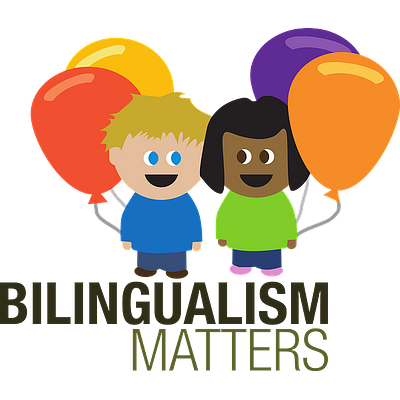
Luxembourg
Bilingualism Matters Luxembourg opened in March 2021. The branch is hosted by the Faculty of Humanities, Education and Social Sciences at the University of Luxembourg. Dr Claudine Kirsch, Associate Professor in Languages, is joined by a team of active researchers on multilingualism from social, educational and psychological perspectives. The branch aims to provide scientific knowledge, information and advice to teachers, educators, university lecturers, parents, health and other professionals, managers in multilingual organizations, researchers, as well as policy-makers.
28 Apr 2026
The Bilingualism Matters Symposium (BMS) is an interdisciplinary conference organised by Bilingualism Matters. It is open to researchers as well as practitioners, irrespective of their affiliation with Bilingualism Matters. The BMS aims to stimulate a productive dialogue between researchers in different academic disciplines and practitioners in different sectors of society. BMS will take place in Milan, Italy from 28th -30th April 2025
Projects
Events
View all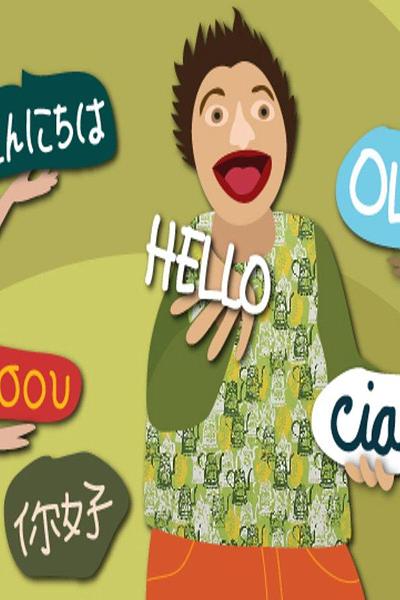
12 May, 2025
Join us in our conference at the University of Luxembourg, the days 12th and 13th of May, 2025.
06-May-2025
Join us in our new event about languages in Canada!
4 Apr, 2025
New event on April 4th, 2025 at the University of Luxembourg!

04-March-2025
Are you raising a multilingual child or wondering how best to support your little one’s language journey? Join us in 4th of March to discuss and ask all these questions you might have!
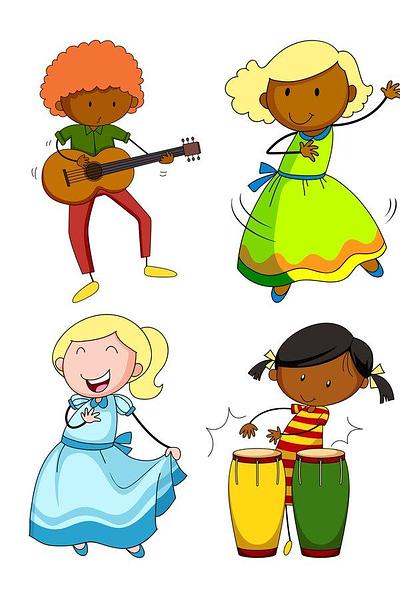
03-December-2024
If you are an early childhood educator, teacher, and/or professional working with young children, we are looking for you.
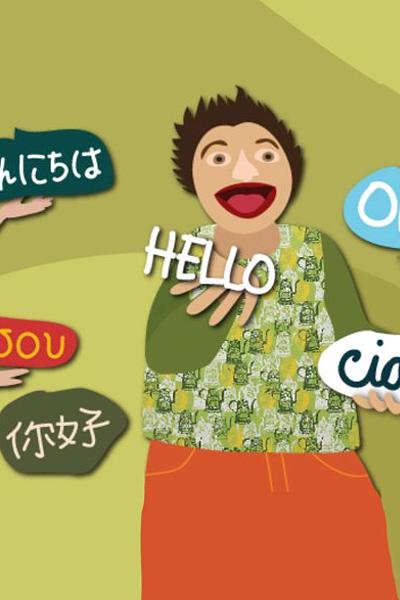
30 Nov, 2024
Call for papers - Multilingual Childhoods 2025

23 Nov, 2024
New event for families on the 23rd of November in Maison des Sciences Humaines, Black Box

16 Oct, 2024
_(1).jpg)
16 Oct, 2024

22 Jun, 2024
Event for families. Conference about the current research-based knowledge on the use of music and music therapy practices to support multilingualism in the form of a joyful workshop. Parents and children of all ages are welcome!
.png)
11 Jun, 2024
Hybrid event about supporting multilingualism at home
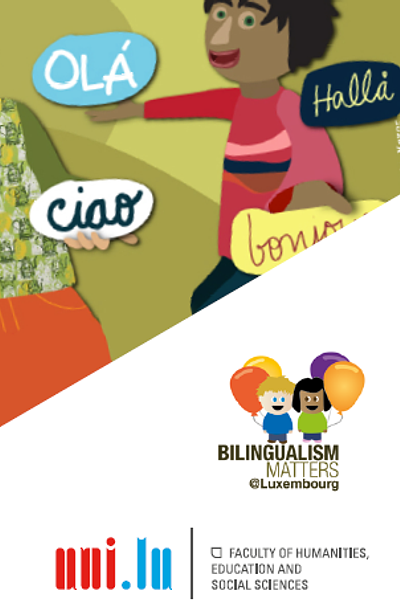
24-May-2024
Symposium followed by a Panel discussion: Conditions for promoting multilingualism in ECEC
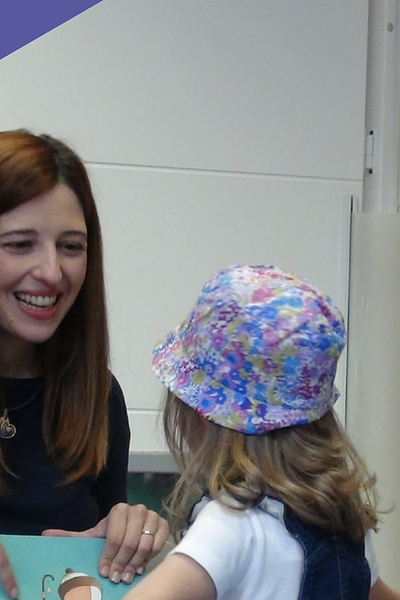
6 Jun, 2023
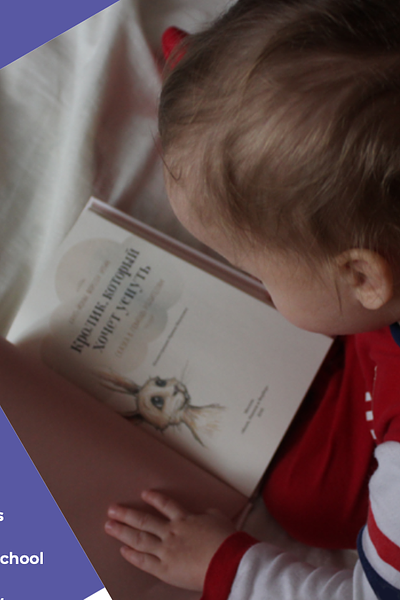
5 Jun, 2023

2 Jun, 2023
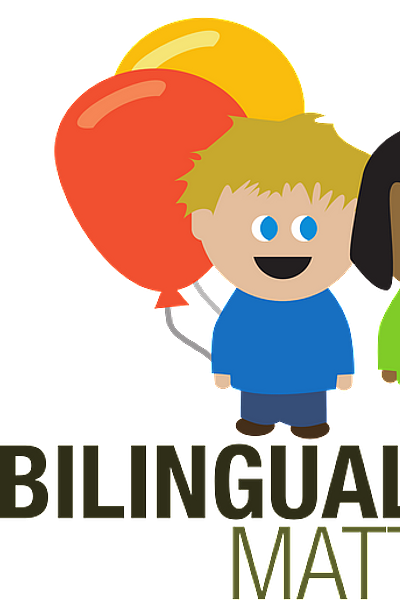
16 May, 2023
Reading regularly to children supports their language development, awakens their desire to read, and promotes their imagination.

14 Oct, 2022
Die beiden Forscherinnen stellen gemeinsame Literacy Aktivitäten von Eltern und ErzieherInnen sowie ein individuelles Beratungskonzept aus der Praxis für die Praxis vor.
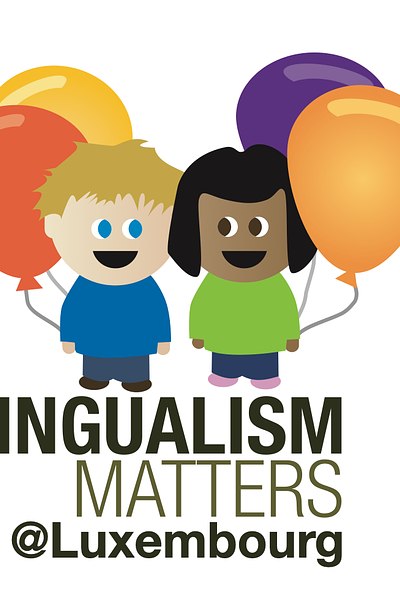
28 Sep, 2022
A Lusofonia abrange diversos grupos e indivíduos, se partilham a língua portuguesa não partilham as mesmas posições históricas. No Luxemburgo, os “lusófonos” constituem o maior grupo de migrantes, mais de 15,6 % da população (Statec 2020). Esta discussão visa refletir sobre como a língua e a história podem impactar a interação dos indivíduos dos países de língua oficial portuguesa no Luxemburgo. Os participantes são convidados a reflectir e partilhar sobre as suas vivências individuais e colectivas.

08-Juli-2022
In einem kurzen Vortrag werden Prof. Dr. Claudine Kirsch und Prof. Dr. Elke Montanari Ihnen zeigen, wie Sie mit ein- bis dreijährigen Kindern Bücher lesen können. Wir werden die Wichtigkeit des Lesens für die Sprachentwicklung erklären und auf diese Weise einige Mythen zerlegen. Anschließend werden wir Ihre Fragen beantworten. Für Getränke und Snacks ist gesorgt.

26-April-2022
Do you have questions about using Persian and other languages at home in Luxembourg? Join us at this event!
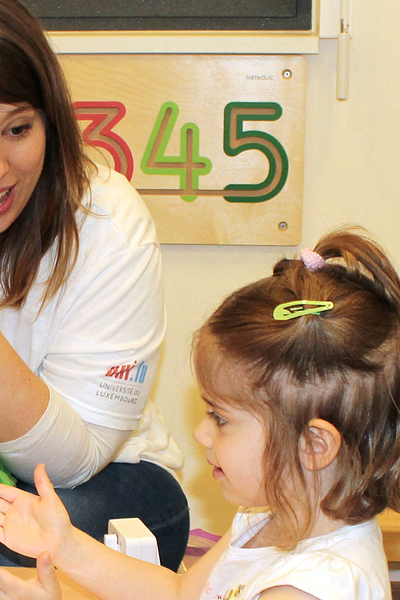
5 Apr, 2022
Assoc.-Prof. Pascale Engel de Abreu will present two intervention studies with linguistically diverse children in Luxembourg at the Slovenian national project Jeziki štejejo - Languages Matter, a project whose main goal is to determine which factors support and which hinder the creation of a supportive learning environment
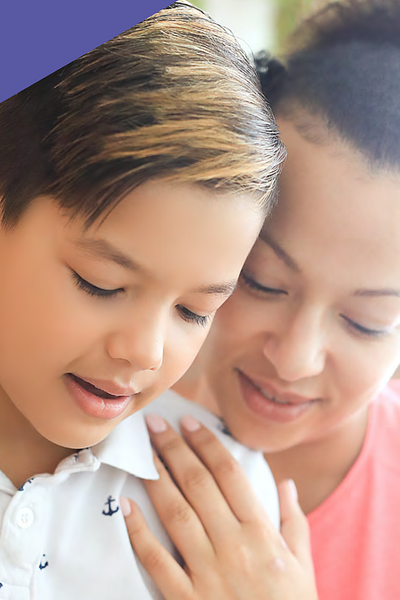
30 Mar, 2022
Nessa conversa online, as palestrantes vão falar sobre a importância da língua materna, além de compartilhar materiais elaborados em Português e dicas de como criar um ambiente rico em linguagem que favorecerá o desenvolvimento da linguagem das crianças.

23-Nov-2021 19:00-20:00
Beaucoup d’entre nous sont multilingues et se demandent comment soutenir au mieux leurs enfants dans leur parcours plurilingue. Cette séance d’information démystifie certains des mythes sur le multilinguisme et présente des principes, méthodes et stratégies pour promouvoir le multilinguisme.
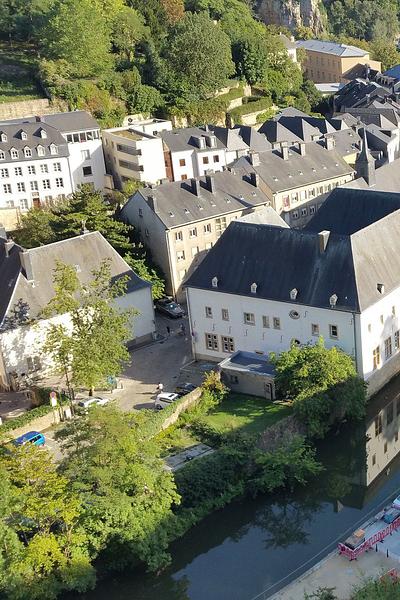
18.11.2021 at 10.30 am
Guest talk by Dr. Michał Paradowski , University of Warsaw, basing on survey data from nearly 9,000 respondents from 118 countries.

30-Nov-2021 19:00-20:00
Vill vun eis si méisproocheg a froen sech, wéi si hir Kanner am beschte beim Sproocheléieren ënnerstëtze kënnen. Dësen Informatiounsowend analyséiert e puer vun de Mythen ronderëm Méisproochegkeet a presentéiert Prinzippien, Methoden a Strategië fir Méisproochegkeet ze fërderen.

20-10-2021
Join us for an evening of information and interaction as we meet in person* for a presentation on the benefits of bilingualism in children and adults!

25-October-2021
Can Luxembourg be a model for the Brussels region? Sven Gatz (Minister of Multilingualism in Belgium), Philippe Van Parijs (President of the Brussels Chair of Multilingualism), Thomas Lambert (Ambassador of Belgium in Luxembourg) and their team visit the University of Luxembourg to find out how multilingualism is promoted in education.
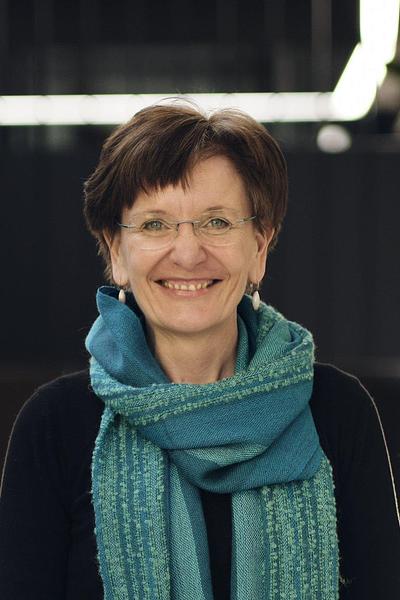
Tuesday, 29 June from 12:00 to 13:00
Prof. Claudine Kirsch, Associate Professor in languages at the University of Luxembourg will talk about myths on multilingualism, her research studies in formal and non-formal education, and the Bilingualism Matters branch in Luxembourg.
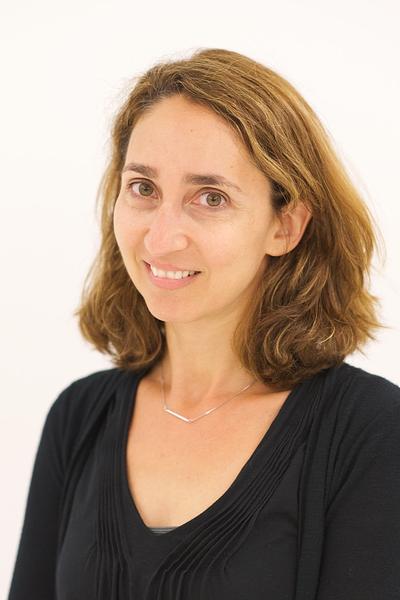
15-June-2021, 16:00-17:30
Sharon Avni, City University of New York (CUNY): "American Jewish Summer Camps as Translanguaging Thirdspaces"

05-March-2021
9 experts on multilingualism congratulate to the launch of BM Luxembourg branch

05-March-2021
The Minister of national Education, Early Childhood and Youth of Luxembourg
News
View allEvent report
Report of the event Navigating Monolingual and Multilingual Spaces that took place on March 4th, 2025 at the University of Luxembourg.
Report of the event for families on the 23rd of November, 2024 at the University of Luxembourg
Event for families about music and music therapy practices to support multilingualism at home - 22nd June.
Report on the Talk by Ms. Franco on June 11th, 2024
Does your employer care about your wish to work multilingually? And does it matter what your co-workers think about your multilingual aspirations? A recently published sociolinguistic study explored the wish (and empty promise) of élite multilingualism in the context of EU workforce mobility.
On May 24th, the University of Luxembourg hosted the symposium "Living Multilingualism in Education", a hybrid event that was jointly organised by BilingualismMatters@Luxembourg and the Multilingual Childhood SIG. Nineteen senior and emerging researchers shared their expertise throughout the day.
Have you ever caught yourself ascribing a nationality to someone based on the way his/her language sounds? You are clearly not alone. We all have different notions of what a language ideally sounds like. How do these notions come about? Is it possible to minimize or eliminate them?
Discover how (non-) negotiation of language choices shapes workplace dynamics in a multilingual EU institution. Our latest report is a read for those who personally experience the resulting tension and disappointment in communication, as well as for managers who care for linguistic well-being (>> talent retention) in their international teams.
If you decided to read on, you probably wonder: “Okay, how does this question make any sense?!”. And no worries, you are not wrong, if you said to yourself that “this cannot be right”, right?
A recent master’s project, conducted at the University of Luxembourg, delved into the dynamics of integration within the country’s financial center, exploring its multicultural international bubble. It examined the reasons for relocation, integration experiences, and identity construction. Specifically, the study focused on language choices and their role in shaping narratives of integration within Luxembourg's financial landscape.
What do young graduates from all over Europe learn about communication during their EU traineeship? That mutual understanding across linguistic and geopolitical borders is as important as ever. However, this does not come without effort...
Do you know what social scripts are? Did you know they can differ from culture to culture? How do you think they are portrayed in a multilingual setting?
Frequent and high-quality shared reading promotes language and early literacy skills in one or two languages and predicts children’s later literacy skills and academic achievement. While reading, adults may focus on letters or sounds and encourage children to read. These code-based interactions help develop letter knowledge, phonological awareness and word recognition Others may talk about the meaning of the book, connect it to the child’s experiences and clarify vocabulary. These meaning-based interactions promote the development of oral language and comprehension skills. Dialogic reading is one type of shared reading where adults encourage children to talk about pictured materials and give them feedback. The method has been successfully used in classrooms in many countries, although mainly in English-speaking countries with monolingual speakers or with children learning English. Based on research carried out on shared reading in the project COMPARE in Luxembourg, we produced guides on dialogic reading in English, German, French, Portuguese and Luxembourgish for parents and educators.
Multilingualism - the ability to speak, understand, and function in more than one language - is an increasingly common phenomenon in our modern, globalized world. However, there are still many myths surrounding multilingualism, which often lead to misunderstandings and misconceptions. In this article, we present three common myths about multilingualism that frighten and confuse some parents and educators.
All EU languages are equally important. Languages should be learned early! These declarations come from the European Parliament which has ratified a multilingual language policy (European Parliament, 2013), and the Council of Europe which aims to support multilingualism. This endeavour is also reflected in the educational policies of the European states, though to a different extent.
An inspiring PhD thesis research that examined the diverse support given by teachers and parents to three young Brazilian children at preschool and at home.
New Luxembourg study paints the multilingual scenery encountered by young migrants, showing the very beginning of their multilingual lives and possible elements influencing their multilingualism.
Mother tongue is the language caregivers talk, sing, and teach it to their new-born. We go to school; we learn to read and write, and we refine our mother tongue through hours of study. It is part of our identity and our belonging to the community.
How about living in a country where you have three official languages?
A kick-off for a reshuffling of the language hierarchy has been launched: French and German, who used to dominate the Luxembourgish administrative and educational world are facing the English language, a strong competitor brought on by globalisation and the rise of the internet.
Luxembourg’s linguistic situation is an example of successful multilingualism, Luxembourgish, French and German are the official languages of the country. Other tongues also find their home here, e.g. English in the financial sector and Portuguese, the idiom spoken by the largest foreign community in the nation.
However, it is important to note the relationship between power and languages, its resulting hierarchy, consistently reinforced or contested by residents.
Good communication is central to strong relationships, but what happens when you and your partner speak different languages and come from different cultures? It should come as no surprise that intercultural and multilingual couples have higher divorce rates than couples from the same culture and language. This article will help you think through some of those common cultural and linguistic communication problems.
Only native-speaking teachers can properly teach a language at school.
Have you ever heard of this statement, or do you perhaps believe in it yourself?
Let’s have a closer look at the related research.
“Kids these days are so lazy, right?” Heard this before? Well, you’d be surprised to hear how many generations we’ve been parroting this same line.
Monolingual expats often struggle to learn the language of their host country, particularly if it’s not required in day-to-day interactions. This article will explain why you should make the effort to learn the local language, as well as how it will improve your life abroad.
This case study of six Turkish families in Luxembourg explores the various ways in which parents support their children when learning multiple languages.
Ce ne sont que les locuteurs natifs qui savent correctement enseigner une langue à l’école. Est-ce que cette affirmation vous est familière ou, peut-être, en êtes-vous-même convaincus ? Regardons de plus près ce que la recherche nous dit à propos de ce sujet.
Have you ever wondered what role can parents and educators play in supporting multilingual learning? In this project, you can find inspiration on the videos created with educators and parents in Luxembourg.
BM Luxembourg launches TRANSLA - a new program for multilingual children - with resources for teachers and parents in English, French and German
Young children only learn written language at school, right? Not really. Children’s first print experience at home matters...
Do you apologise for your poor foreign language skills in multilingual encounters? Find out about the hidden social effects of this common monolingual practice.
Speaking English is often seen as an advantage, but a study from Luxembourg shows the 'native English' position can have drawbacks in the multilingual workplace.
Bilingualism Matters Luxembourg opened on 5th March 2021. Find out about the members, who all research multilingualism from social, educational and psychological perspectives.

